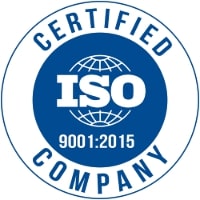BIS Certification for Electric Immersion Water Heaters –IS 302 (Part 2 /Sec 201)

Product Description
Electric
immersion water heaters are widely used household appliances for quickly
heating water by submerging the heating element directly into water containers.
Given their exposure to water and high temperatures, these devices must adhere
to strict safety standards to prevent electrical hazards, overheating, and
corrosion. The BIS certification under IS 302 (Part 2/Sec 201) specifies key
safety guidelines, ensuring water heaters provide safe, reliable, and efficient
performance for consumers. Compliance with BIS standards assure users of the
product’s quality, durability, and safety.
Introduction
Under the
Bureau of Indian Standards (BIS), electric immersion water heaters fall under
the mandatory certification of IS 302 (Part 2/Sec 201). This standard
establishes strict safety requirements for water heaters, addressing risks
associated with electric shocks, overheating, and environmental exposure. For
manufacturers, obtaining BIS certification, represented by the ISI mark, is essential
to legally market electric immersion water heaters in India, guaranteeing that
the products meet national safety standards for household appliances.
Why is BIS Certification Necessary for Electric
Immersion Water Heaters?
The BIS certification for electric immersion water heaters is vital for ensuring consumer safety. As these appliances operate directly within water, they present unique risks, such as potential electrical shocks and overheating hazards. BIS certification verifies that the water heater meets the IS 302 (Part 2/Sec 201) safety requirements, ensuring users are protected from hazards. Additionally, the certification enhances product reliability, reassuring consumers of the heater's durability and safety.
Overview of Indian Standard IS 302 (Part 2/Sec 201)
Indian
Standard IS 302 (Part 2/Sec 201) specifies safety requirements for electric immersion water heaters,
addressing essential safety parameters to protect users. The standard
emphasizes electrical
insulation, ensuring the appliance's insulation
safeguards users from electric shocks, even when submerged in water. Overheating protection
is also mandated, requiring mechanisms to prevent the heating element from
reaching unsafe temperatures, thus reducing the risk of burns or fire. The
standard also outlines corrosion
resistance, specifying the use of corrosion-resistant materials
in water heaters to ensure safety and durability, even with prolonged exposure
to water. Additionally, it requires the durability
of heating elements, ensuring they are made from materials that
can withstand high temperatures, providing long-term, consistent performance.
Finally, performance
consistency is emphasized, ensuring the water heater maintains
a stable and efficient heating rate without sudden temperature fluctuations,
offering reliable and safe operation for users
Process for BIS Certification
The BIS
certification process for electric immersion water heaters under IS 302 (Part
2/Sec 201) includes several key steps to ensure compliance with national
standards:
- Application Submission: Manufacturers submit an
application form along with the necessary documents, including technical
specifications and safety details.
- Document Review: BIS reviews the
documentation to confirm compliance with the IS 302 (Part 2/Sec 201)
standard.
- Factory Inspection: BIS conducts an on-site
inspection to verify production quality and ensure safety standards are
integrated into manufacturing processes.
- Sample Testing: Samples of the water
heater are tested in BIS-approved laboratories to assess compliance with
the safety specifications outlined in IS 302 (Part 2/Sec 201).
- Certification Grant: Upon successful testing
and inspection, BIS grants certification, allowing the manufacturer to
display the ISI mark on their water heaters.
Documents Required for BIS Certification
Manufacturers
applying for BIS certification for electric immersion water heaters must
provide the following documentation:
- Application form
- Product specifications and
technical details
- Quality control and
manufacturing process documentation
- Test reports from
BIS-approved laboratories
- Factory layout and equipment
details
- Proof of business
registration
- Declaration of conformity to
IS 302 (Part 2/Sec 201) standards
These documents demonstrate the manufacturer’s adherence to the required safety and performance standards.
BIS ISI Mark Certification Costing And Timeline
To Know The Process in Detail, Please Visit:
- BIS ISI Mark Certification for Domestic Manufactures
- BIS ISI Mark Certification for Foreign Manufactures
Under BIS Registration Products ISI and CRS
Conclusion
BIS
certification under IS 302 (Part 2/Sec 201) for electric immersion water
heaters is essential for ensuring the highest safety standards, providing
consumers with reliable, safe appliances for household use. By obtaining BIS
certification, manufacturers demonstrate their commitment to product safety,
enhancing customer confidence. EVTL India offers expert consultancy services,
guiding manufacturers through the BIS certification process to secure a
successful, compliant product launch. With EVTL India’s assistance,
manufacturers streamline the certification process, ensuring their water
heaters meet BIS standards and achieve market readiness.























